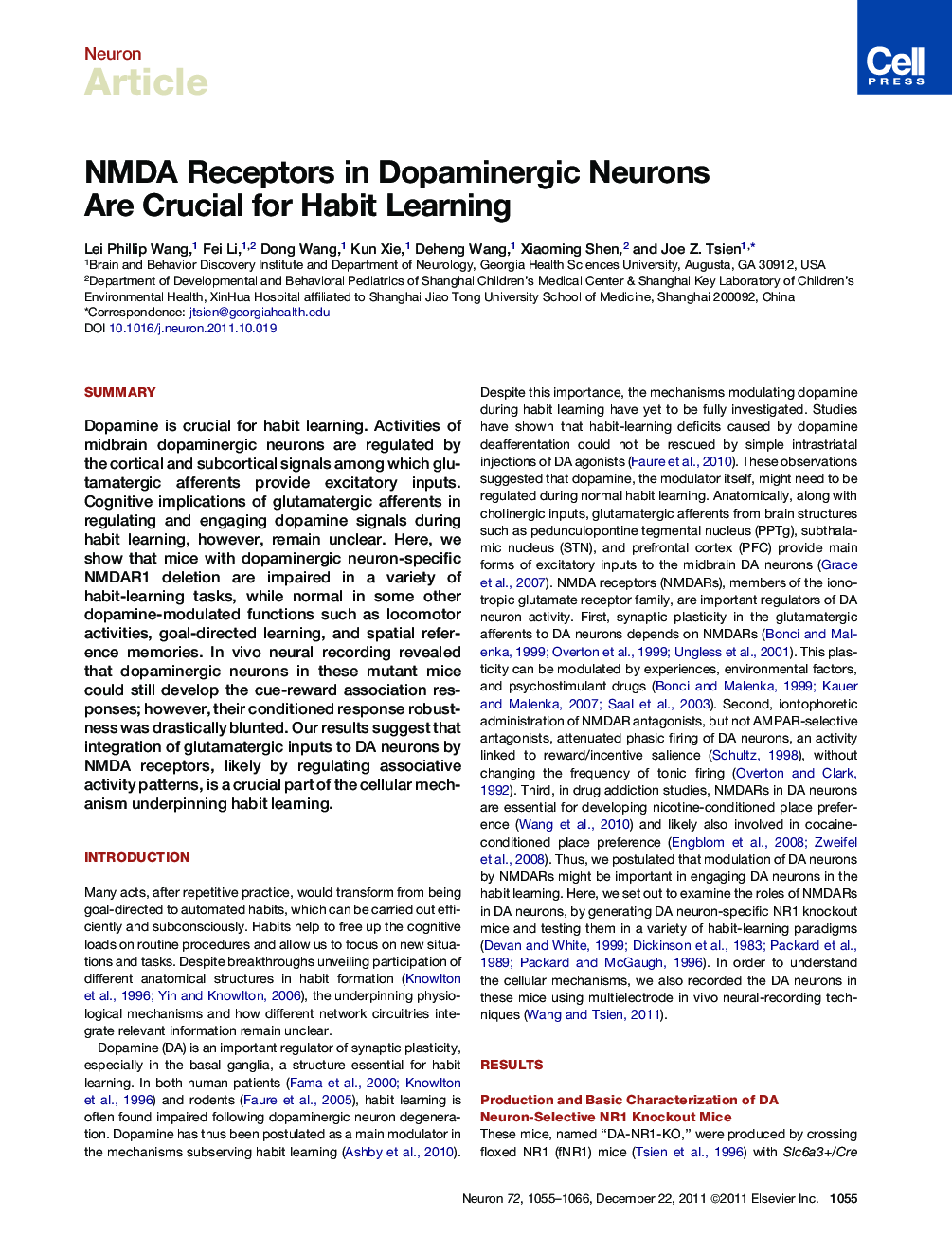| Article ID | Journal | Published Year | Pages | File Type |
|---|---|---|---|---|
| 4321415 | Neuron | 2011 | 12 Pages |
SummaryDopamine is crucial for habit learning. Activities of midbrain dopaminergic neurons are regulated by the cortical and subcortical signals among which glutamatergic afferents provide excitatory inputs. Cognitive implications of glutamatergic afferents in regulating and engaging dopamine signals during habit learning, however, remain unclear. Here, we show that mice with dopaminergic neuron-specific NMDAR1 deletion are impaired in a variety of habit-learning tasks, while normal in some other dopamine-modulated functions such as locomotor activities, goal-directed learning, and spatial reference memories. In vivo neural recording revealed that dopaminergic neurons in these mutant mice could still develop the cue-reward association responses; however, their conditioned response robustness was drastically blunted. Our results suggest that integration of glutamatergic inputs to DA neurons by NMDA receptors, likely by regulating associative activity patterns, is a crucial part of the cellular mechanism underpinning habit learning.Video Abstract To view the video inline, enable JavaScript on your browser. However, you can download and view the video by clicking on the icon belowHelp with MP4 filesOptionsDownload video (12051 K)
► Many DA-regulated functions were spared in DA-selective NR1 KO mice ► NR1 modulates but is not required for cue-reward association in DA neurons ► NR1 in DA neurons is required for habit learning ► DA-NR1-KO mice can learn goal-directed actions
